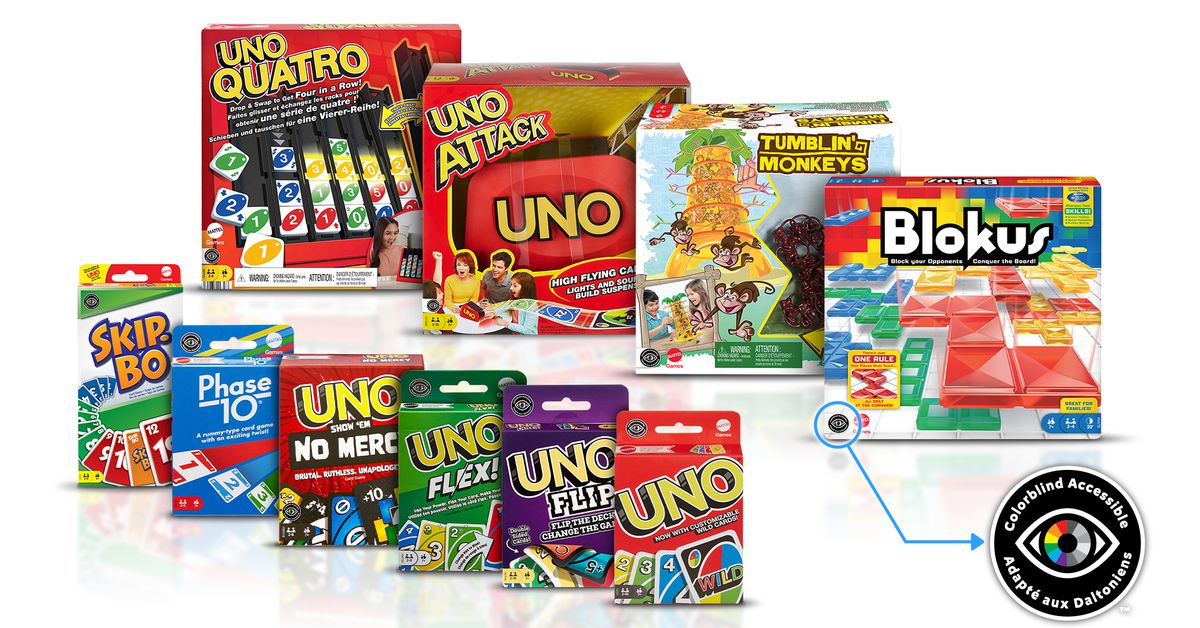Mattel, the toy manufacturer responsible for popular card games like Uno, Apples to Apples, and Phase 10, has made a sweeping commitment to make around 80% of its games catalog colorblind-accessible by the end of 2024, the company announced Tuesday. The inaugural run of colorblind accessible games includes several versions of Uno, as well as some of its tactile games like Tumblin’ Monkeys and Blokus. In addition to this impressive commitment to inclusion, Mattel will be donating over $30K of these freshly minted titles to summer camps across the United States via the YMCA.
Moving forward, Mattel plans to make its games colorblind accessible wherever possible, and says it expects that 90% of its games catalog will be colorblind-accessible by the end of 2025. Any future titles with this change will include a “colorblind accessible” symbol, placed in the corner of the box.
:no_upscale()/cdn.vox-cdn.com/uploads/chorus_asset/file/25504079/Hero_Portfolio_Shot_ENG_copy.jpg)
Image: Mattel
According to Ray Adler, Vice President and Global Head of Games at Mattel, before implementing this rollover and throughout the design process, Mattel partnered with several experts in the color vision deficiency field and consulted with individuals who experience colorblindness, including Mattel designers. Together, they developed custom solutions for games to ensure color was not the only way to differentiate cards or components – like icons and other tactical clues on cards or game pieces. In addition to its physical titles, Mattel will also be implementing similar updates to mobile versions of its games through Mattel163, its mobile game app holder.
:no_upscale()/cdn.vox-cdn.com/uploads/chorus_asset/file/25503878/Hero_Portfolio_Shot_Lifestyle_.jpg)
Image: Mattel
Back in 2017, Mattel partnered with ColorADD, a global organization leading the industry for colorblind accessibility and education, to create the UNO ColorADD deck. ColorADD pioneered a color identification system for colorblind people as a universal and inclusive code in support of the estimated 350 million people around the world who are affected by colorblindness. Mattel also published a version of Uno for the visually impaired, Uno Braille, in 2019.
Board game publishers have been making great strides in making their titles more accessible. However, there are plenty of popular games like Pandemic, Mysterium, or Dixit that remain difficult or entirely unplayable for people with certain types of color blindness. Accessibility means making small changes to level the playing field so everyone feels included. While standardizing accessibility in gaming still has a way to go, it’s encouraging to see publishers like Mattel making a larger commitment to inclusion in the industry.

